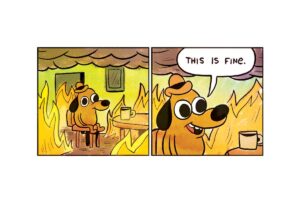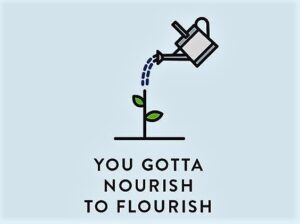Dealing With Activist Burnout

Posted by Katerina Tsvetkova
October 16, 2019
Whenever I publicly identify myself as an activist, I often find myself looking into a metaphorical mirror, staring at my reflection, asking me, “But are you really?” The question then leads me down the never-ending rabbit hole of imposter syndrome. I know that most of this comes from my white privilege and trying to be as self-aware as possible about it, and making sure that I am utilizing it for good and the protection of others.
I am very fortunate to have both a supportive and educational activist community, where women of color (WOC) validate me and help me change my language and learn when to step back. This kind of support and learning is what motivates me to continue to be involved with my community as much as I possibly can. I have been doing activist work and organizing for about five years now. However, there are many times when I feel that I am not doing enough.
Do I go to this rally/protest? Or do I instead study for my classes and exams? Should I say yes to this possible networking opportunity event? Do I apply for this organizing job? Am I following enough activist accounts on twitter and Instagram? Did I post about every single event that includes community organizing and activism in my city for this week? Do I read a sci-fi horror book or “Are Prisons Obsolete?” by Angela Davis? Are my friends’ activists? Do I excuse them if they are not? Why am I not starting a non-profit? WHY AM I NOT DOING ENOUGH??!!

This is when I need to close my eyes and remind myself that: I am twenty-two, in the process of getting my bachelor’s degree, helping on the e-board of a student organization at my university focused on activism and intersectional feminism, trying to volunteer and show up to as many events as I possibly can, trying to maintain healthy romantic, family, and friend relationships, and doing my best to sleep 8 hours a day.

I feel like we often try to insert ourselves into as many things possible to make sure we are genuinely embodying intersectional feminism and activism. That is especially true when we have romantic and platonic relationships with people who are just as passionate as us. Sure, this creates excellent opportunities for collaboration, but we need to remind ourselves to look at the plate we are holding and make sure that we can handle it.
There are so many things that activist work encompasses, and I think that we need to remind ourselves that we don’t need to be involved in everything. There are other ways we can show our support. It could be a simple RT, fav, or like on social media. Maybe it’s sharing an event or account with a group of friends, or even a donation. When we realize that this is collaborative work, we can understand that in the end, we are all working towards the same goal.
Burdens can be different for people who try to incorporate this work on top of a different job, school, and family commitments. I know that this can be especially hard for those who work for organizations centered around activist work.
In an article from the Journal of Human Rights Practice, titled “Burnout in Social Justice and Human Rights Activists: Symptoms, Causes and Implication,” authors Chen and Gorski use the term emotional labor. The term encompasses the emotional attachment we often have in social justice work because many activists are apart of communities that are marginalized. Activist work, coupled with daily discrimination that can range from racism, sexism, homophobia, to xenophobia, is challenging, to say the least. That is why we need to remember to show each other support and to also engage in self-care practices.
If accessible and possible, start seeing a therapist. There are many things that we are exposed to daily that are often more traumatic than we let ourselves believe. It is a psychological defense mechanism. If possible, try to take a step back from some of the things you’ve been stretching yourself to accomplish. I recently had to step back from working with an organization to preserve my mental health and to help myself allocate more time for my studies. I’ve also been less involved than I previously was with a student activist organization at my university. However, I have been sleeping more and doing my best to work on my mental health. I’ve noticed my relationships with my family and friends have improved and become even stronger since doing so.
There is a saying that one person cannot do everything on their own, and it’s very true. Which is why community organizing and coalition building are so important. But it is also essential to assess the amount of work we are doing. It’s ok to step back because, in the end, the work will still be there. It often seems bittersweet and counterintuitive, but for the time being and to be realistic, our society has a long way to go. We are moving in the right direction in this work we allow ourselves to be apart of, but if we do not take care of ourselves, who will be there do to this much-needed work?

Leave a Reply
You must be logged in to post a comment.

